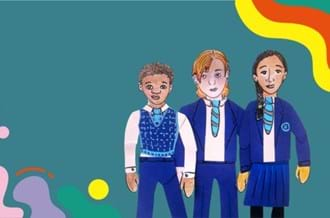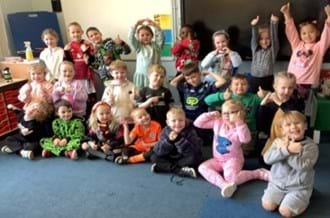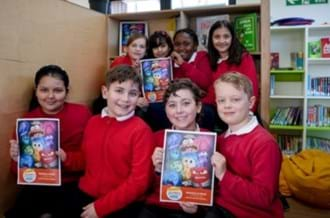Talking to children and young people about war and conflict
Talking to children and young people about war and conflict
When war or conflict is in the news, it can cause feelings such as fear, sadness and anxiety for children, young people and adults. Place2Be’s Educational Psychologists share their advice on how to talk to children and young people about war and conflict and how to support them if they’re struggling.
As teachers, parents and carers, it is impossible to protect children from world events, such as war and conflict. We can, however:
- Create a sense of safety and stability at home and at school
- Find ways to cope with uncertainty together
- Be hopeful for peace and safety for all
- Be compassionate for all
- Look after our own wellbeing and seek support as we support others
When talking to children and young people about war, it is important to take into account their age, stage of development and whether they have special educational needs, additional support needs or other needs that may make them more vulnerable.
Here are some things you may find helpful:
- Be led by the child: what do they already know about the situation, and how have they found out about it? Reinforce the importance of getting news from a reputable source, such as the BBC. You could look at reliable news sources together.
- Encourage young people to access a range of media content that they normally enjoy and discourage overexposure to news and ‘doom-scrolling’.
- Children may be exposed to explicit images that can trigger fear responses. Let them know that you are open to talking about what they have seen or heard.
- Be open to talking with children about conflict and war and say that you may not have all the answers. If you are unsure, say that you don’t know. Acknowledge uncertainty and validate the feelings that arise from uncertainty. For example, “It sounds like you are unsure and are worried about what could happen next”.
- Young children may not talk directly about war, and their fears might come out in their play. You can join them in their play to help explore their feelings alongside them.
- Ask children about their feelings about conflict and war. For example, they may feel worried, frightened, angry or confused or a whole range of other emotions. Listen to their feelings and acknowledge them as valid, rather than minimising or dismissing them.
- At the same time, reassure the child that parents and carers at home, and teachers at school, are there to keep them safe and that many people around the world are working hard to try to resolve the conflict or war.
- Encourage children to think about the things they can be more certain about and influence, and to look after their own wellbeing. For example, they can still play, learn, be with their friends, listen to music, play sport etc.
- Children with additional needs may need some extra support. This resource from Phoenix Education Consultancy may be useful.
- Children who have family and friends in countries directly affected by conflict and war may feel particularly upset. Children from all communities will need compassion, support and to feel safe. You may need to monitor how people in school (and beyond) are responding to classmates, colleagues and families from the communities most directly affected.
- Be aware of children and families who are refugees and have fled conflict, as discussions about war may be particularly poignant for them.
- Children and young people may be interested in peace building and humanitarian organisations who are active in times of war and conflict. If children want to help, encourage their concern and compassion. This might include raising funds, campaigning for peace, posting messages of hope etc.
- Children who have members of their families in the armed forces are likely to fear for the safety of their loved ones. Be mindful that these children may need additional space, time and support. Further information and resources are available from Little Troopers.
Children’s ability to cope is influenced by their teachers, parents, carers and other important adults in their lives. It is important that you look after your own mental health and seek support if you feel overwhelmed. For more support please contact:
- Shout Text Helpline, text CONNECT to 85258 to contact Shout for free, 24/7.
- Education Support Partnership Helpline, call 08000 562 561 or text 07909 341229 for free, 24/7.
- The Young Minds Parents Helpline, call for free on 0808 802 5544 (9.30am - 4pm, Monday-Friday, UK).
News & blogs

Three charities launch wellbeing video for young carers
Three charities have joined forces to launch a new video aimed at fostering the wellbeing and creativity of young carers.
Read more
“Know Yourself, Grow Yourself”: A look back at Children’s Mental Health Week 2025
During Children’s Mental Health Week 2025, we encouraged people to embrace self-awareness and explore what it means to them.
Read more
Smiley Movement visits Gwyn Jones Primary School for Place2Be’s Children’s Mental Health Week
Smiley Movement and Place2Be visited Gwyn Jones Primary School to see how they're celebrating Children's Mental Health Week.
Read more



